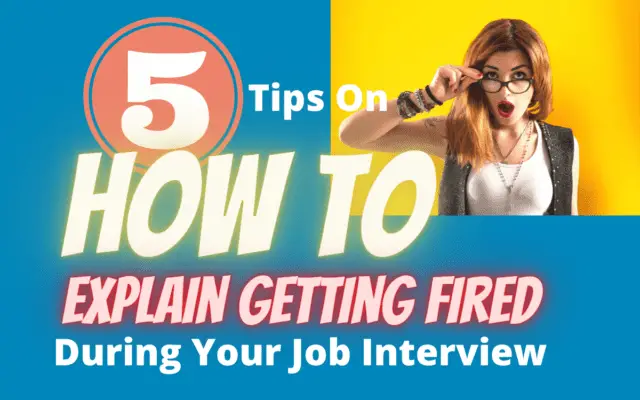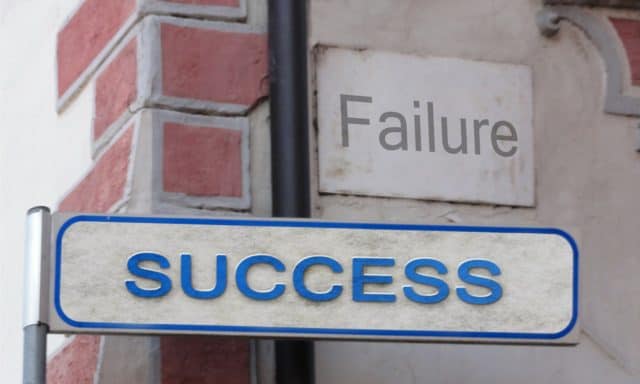Are you worried about how to explain getting fired in an interview? It is not uncommon for people to lose their jobs these days.
It could be due to any reason, including not being the right fit for the company, lack of work experience, or even lack of skills.
Regardless, it is important that you are honest about your employment history when interviewing for new positions. Aside from being the right thing to do, the truth always has a way of coming out in the end.
Should You Lie About Being Fired?
Should you say why you were fired at a job interview? The answer is yes. You may think it’s risky if you were fired with good reason, and you deserved it.
The interviewer will want to know why you left your last position, so they can determine whether they want to hire you. If you let them know it was something like bad management or a toxic work environment, no matter how true, then that may be a good enough reason not to hire you in their eyes.
A new employer doesn’t want to hire what they see as problematic employees!
Can You Get Hired After Being Terminated?
Getting fired doesn’t mean you won’t be able to find a better job! In fact, if you play your cards right, you may find getting fired was the best thing that ever happened to you.
In today’s day and age, it’s not uncommon for people to get laid off from their job. It’s a tough time for everyone involved, but it doesn’t have to be the end of the world. In fact, it could be just what you need to find your true calling and finally make a name for yourself in the industry.
The world is changing rapidly and there are more opportunities than ever before. With so many new jobs available every day and so many skill sets needed in order to even apply for them, getting fired might just be a blessing in disguise.
How to Explain Getting Fired During an Interview
If you are interviewing for a new job, the interviewer will most likely ask about your previous employment and if you have been fired from a previous job. It is critical to be prepared to answer this question in a way that will not completely disqualify you from the position.
You should never get defensive or angry with the interviewer if they ask you about your work history, but instead should be honest and professional about what happened.
You should never talk poorly about your former employer or coworkers and instead focus on how you can better yourself in the future.
5 Steps on Interviewing After Being Fired
- Use the Positive Approach
First, you should be honest about the reason you got fired. Maybe the position wasn’t a good fit for you.
Or it could be that you weren’t on the same page as your boss, or there was a miscommunication. A big mistake would be to spend too much time explaining why you were let go or why you resigned.
If it was your fault, you should say that you made a mistake and that you are sorry for what happened. Explain what happened in detail and how it was a learning experience for you.
Talk about your potential and how it is greater than your mistakes. This will possibly show the interviewer that you have learned from your mistakes and are now a better person because of the experience.
Let the interviewer know about the skills that you have gained during this unfortunate event, such as communication skills or leadership skills. These can be very valuable to any employer since your skill set will help with their company’s goals.
- Don’t Say Anything Negative About Your Former Employer
It’s always tempting to talk about your former employer and the things you loved and hated about them. But, there are some things that you should never say or do when it comes to your former employer.
- Never say anything negative about your former employer
- Do not speak badly of the management decisions of your former company
- Don’t badmouth colleagues or bosses in front of new employers
- Be Honest During Your Interview
It might seem like a strange question, but it’s the one that matters most.
How honest are you? If you’re on the fence about whether to be honest, come down from that fence!
Honesty is always the best way to go. You should not lie about your past work experience during an interview because interviewers can spot a lie from a mile away.
The truth is always the best option because it will come across as honest and open communication.
- Look at the Interviewer’s Face and Offer a Simple Explanation
Don’t be afraid to look at the interviewer’s face after they ask you the question. It will make them feel more comfortable, and you will have a better chance of getting the job.
It is important for the interviewer to feel at ease and be able to talk with you, or else the interview will probably not go as well as you’d like.
If you were fired from your last job, don’t be afraid to tell them about it in an interview. Be honest, but also offer a simple explanation for why it happened.
That way, you can show the interviewer that you are a trustworthy person, and they will not have to worry about any surprises in the future.
- Practice in Front of a Mirror or Friend Prior to the Interview
If you have been fired from your last job, and you are going for a new interview, it is essential that you practice in front of a mirror or with a friend before the interview. This will help you to calm your nerves and focus on what you want to say.
Practicing in front of a mirror or friend is a good way to make sure you don’t make the same mistakes in your next interview. You should also practice what you will say to the interviewer and how you will answer difficult questions.
Practice makes perfect because interviewers are looking for confident people who are able to answer any question thrown at them with ease.
How to Explain Being Fired—2 Examples of Justifiable Ways
- You could say that the company was going through some tough times, and they needed to make cuts. That is why they had to let people go. You should also mention that it wasn’t personal, it was just business, and you understand that.
- Another possible explanation would be that the company had a different vision for the future and your skills didn’t align with what they wanted in their employees. This means that you weren’t a good fit for them anymore, but there might be other companies out there who would be interested in your skill set or vision for the future.





